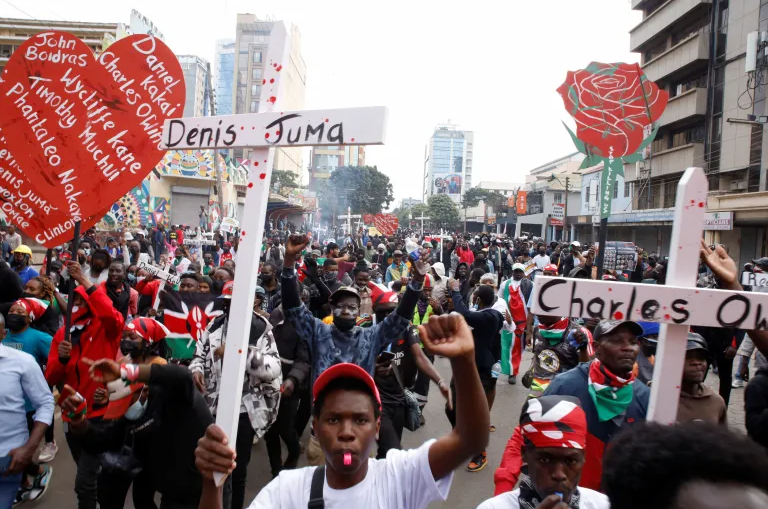Kenya’s Generation Z Protests Reflect Active Democracy

Kenya’s youth-led protests are a vivid display of democracy, not a sign of its collapse. Streets have become centers of political participation, as young Kenyans demand real change beyond periodic elections.
Meanwhile, these demonstrations mark the first anniversary of the deadly 2024 anti-government protests. As a result, the movement has gained symbolic power, echoing past struggles for freedom and justice.
Government Reaction and Intensifying Crackdown
The government of President William Ruto has framed the demonstrations as threats to public order. However, security forces have responded with intimidation, arrests, and even abductions of protesters.
In addition, some activists have faced terrorism charges, which reflects tactics often used by Western governments to criminalize dissent. Ruto even dismissed the protests as “fashionable,” claiming they could endanger the nation’s stability.
Furthermore, his administration has suggested “national talks” and intergenerational dialogues. Yet, activists fear that such meetings could neutralize their movement rather than deliver genuine reforms.
Protests as a Core Democratic Practice
Street protests are not the result of failed politics; instead, they are an essential exercise of civic power. Moreover, Generation Z has used both streets and social media to educate, organize, and provide community support.
For example, they have raised funds, offered medical and legal assistance, and supported bereaved families. Consequently, they demonstrate that democracy flourishes when citizens participate outside formal political structures.
Learning From Past Struggles for Reform
Today’s youth movement strongly recalls the 1990s fight against President Daniel arap Moi’s dictatorship. Then, persistent street protests won historic reforms, including multi-party democracy and expanded civil liberties.
However, removing Moi did not transform the underlying system. Many former reformers entered government, compromised their principles, and focused on maintaining power. Therefore, Generation Z must avoid repeating that cycle.
Avoiding the Trap of Elite Deals
Kenya’s history is filled with elite pacts that calmed protests but protected entrenched power. For instance, the 1997 Inter-Parties talks, the 2008 Kofi Annan-led mediation, and the 2018 “handshake” all diluted public anger while preserving the political status quo.
As a result, today’s calls for intergenerational conclaves should be met with caution. Real transformation requires challenging the system, not simply reshuffling leadership.
A Call for True Systemic Change
Chants of “Ruto must go” inspire mass mobilization. However, the movement’s goal must extend beyond removing a single leader. Instead, youth must dismantle the structures that enable oppression.
By keeping the streets active, transparent, and creative, Generation Z can drive systemic reform. Ultimately, their defiance is not a threat to democracy—it is democracy in action.
